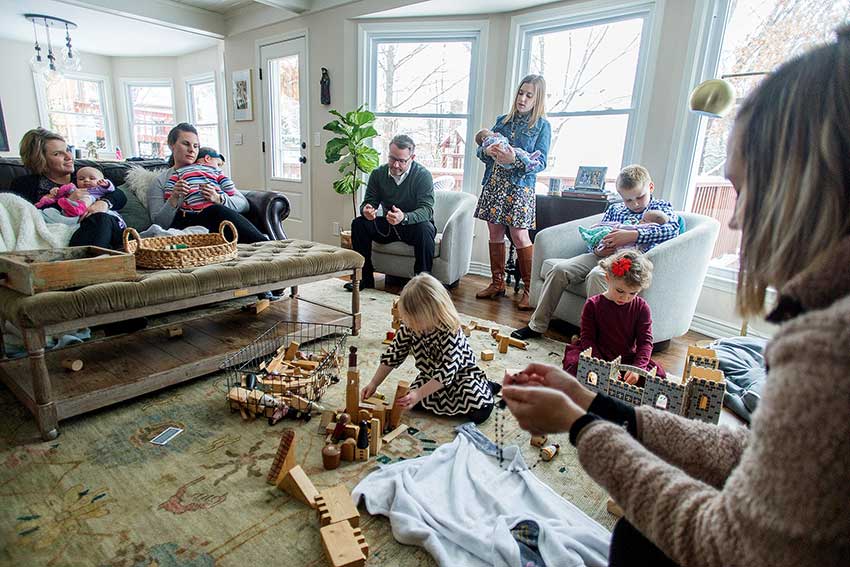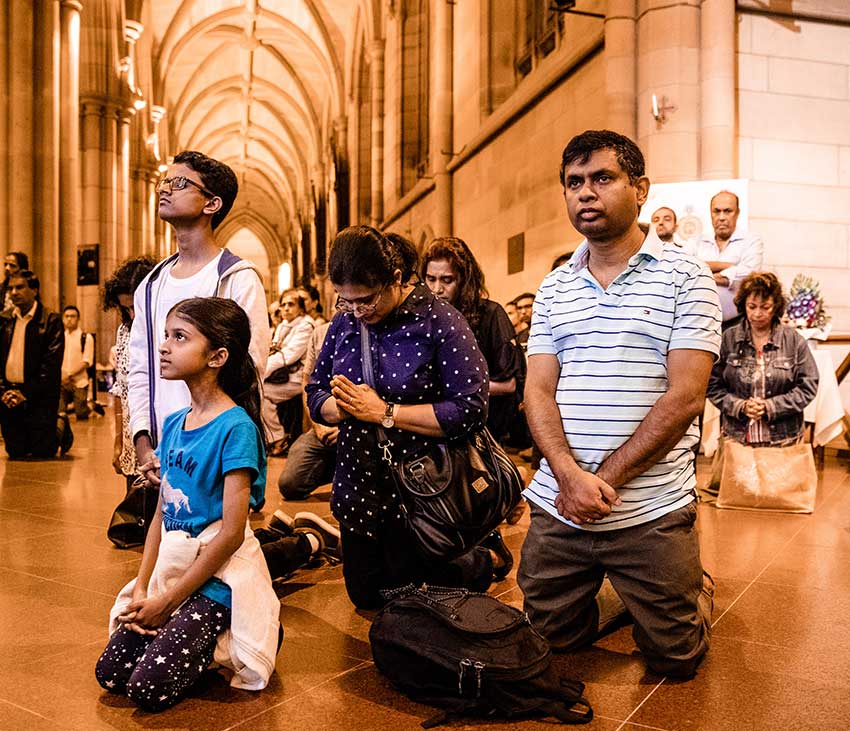
I’m continuing to unpack our national Catholic survey results and find out more about our group of around 700 massgoing Catholics under the age of 40.
Last week I wrote that 79 per cent of these younger Catholics said that their enjoyment in “taking part in the service itself and experiencing the liturgy” was a very important reason for them to go to Mass regularly.
The usual suspects could say, “You see? We just have to make the liturgy enjoyable and fun for young people!” Then they reach for the craft scissors—God help us all.
But the data doesn’t support the use of craft scissors. The reasons for going to Mass that our under-40s rank as “very important” are almost identical to every other age group in our survey, right up to the 80-year-olds.
There seem to be only two reasons that change in importance over the age groups. One of these is the amount of enjoyment people get out of being with others at Mass.
Only 43 per cent of our under-40s said that this was “very important,” but the figure went up to around 60 per cent of massgoing Catholics over the age of 70. This goes with increasing loneliness as people age, when church can become their major social outing.
Attending Mass because “the church asks me to attend” becomes less important as each group gets older. The under 30s think fulfilling the church’s obligation is most important (56 per cent).
Otherwise, our data indicates that if you are a massgoing Catholic in Australia of any age, you’re probably there for the right reasons. You want a living relationship with Jesus in the sacraments and you want to receive Holy Communion to help you build this.
Let’s think about why 56 per cent of our massgoing Catholics under 30 think it’s very important to go to Mass because the church asks you to. This tells us something about catechesis.
Around 74 per cent of our young regular Mass-goers had a mum who went to Mass at least every week, and around 64 per cent had dads who went at least weekly.
Both my parents also went to Mass every Sunday. By the time the postconciliar children’s liturgy came to our parish, I was already used to attending Mass with adults.

This mostly involved being made to sit still, be quiet, and learn that something serious was going on. But because we talked about religion at home during the week, I learned what was really happening at Mass.
I think our data supports the idea that the best liturgical catechesis for children is going to Mass on Sunday with their parents, and then talking about it afterwards at home.
Building the habit of going to Mass regularly with their parents will help children to sustain the habit as they mature. It also helps them to learn how to behave in Mass.
That’s if they’re taught consistently. Please be patient; It takes time.
This is why I encourage anyone with small children to bring them to Mass as often as they can. The more the kids come, the more they will get used to it.
Habit is one of those things, like memorization, that’s gone out of fashion in education, but actually it’s a very powerful tool. Young children don’t yet know why they go to Mass every Sunday, but they can certainly be formed to go to Mass as part of a routine.
As they get older, they can learn the reasons why. And the older they get, the more they learn.
That’s why 56 per cent of the under 30s think that the rules about Mass-going matter—but only 29 per cent of the oldies do. The oldies have learned that love matters more.
When parents take their kids to Mass every Sunday, they are forming the habit of Mass going in that child. And unless you have that skeleton laid down, the child can’t grow the muscles and flesh of faith and the blood of Christian life.
It explains why we have so many young Catholics who are more like a Slinky or a blob of silly putty. They have no skeleton of core beliefs and habits, so they are easily moulded into any ideology that looks good and sounds like fun.
This isn’t what God wants. He wants living stones to build a spiritual house, a holy priesthood (1 Peter 2:5). You can’t be a living stone until you have some spiritual scaffolding inside you.
